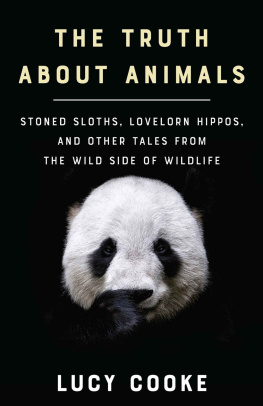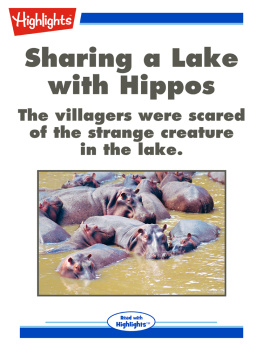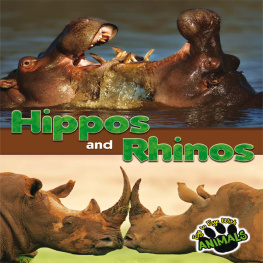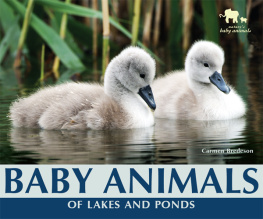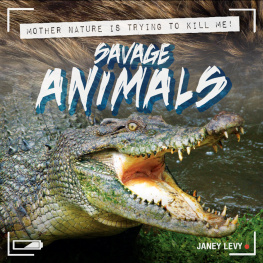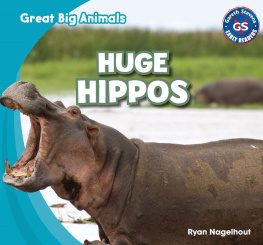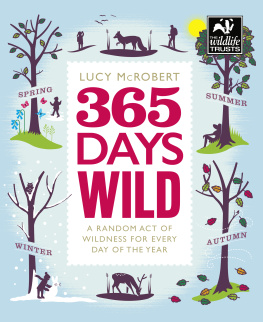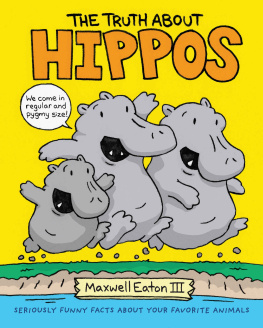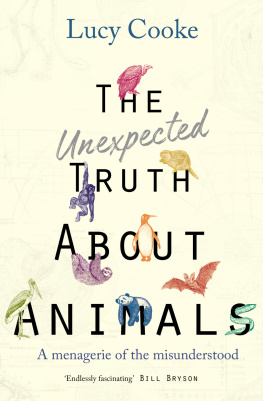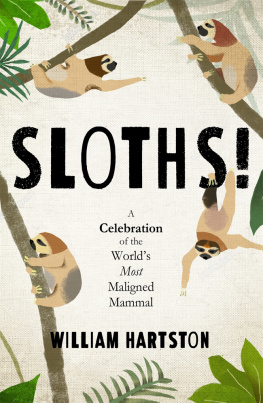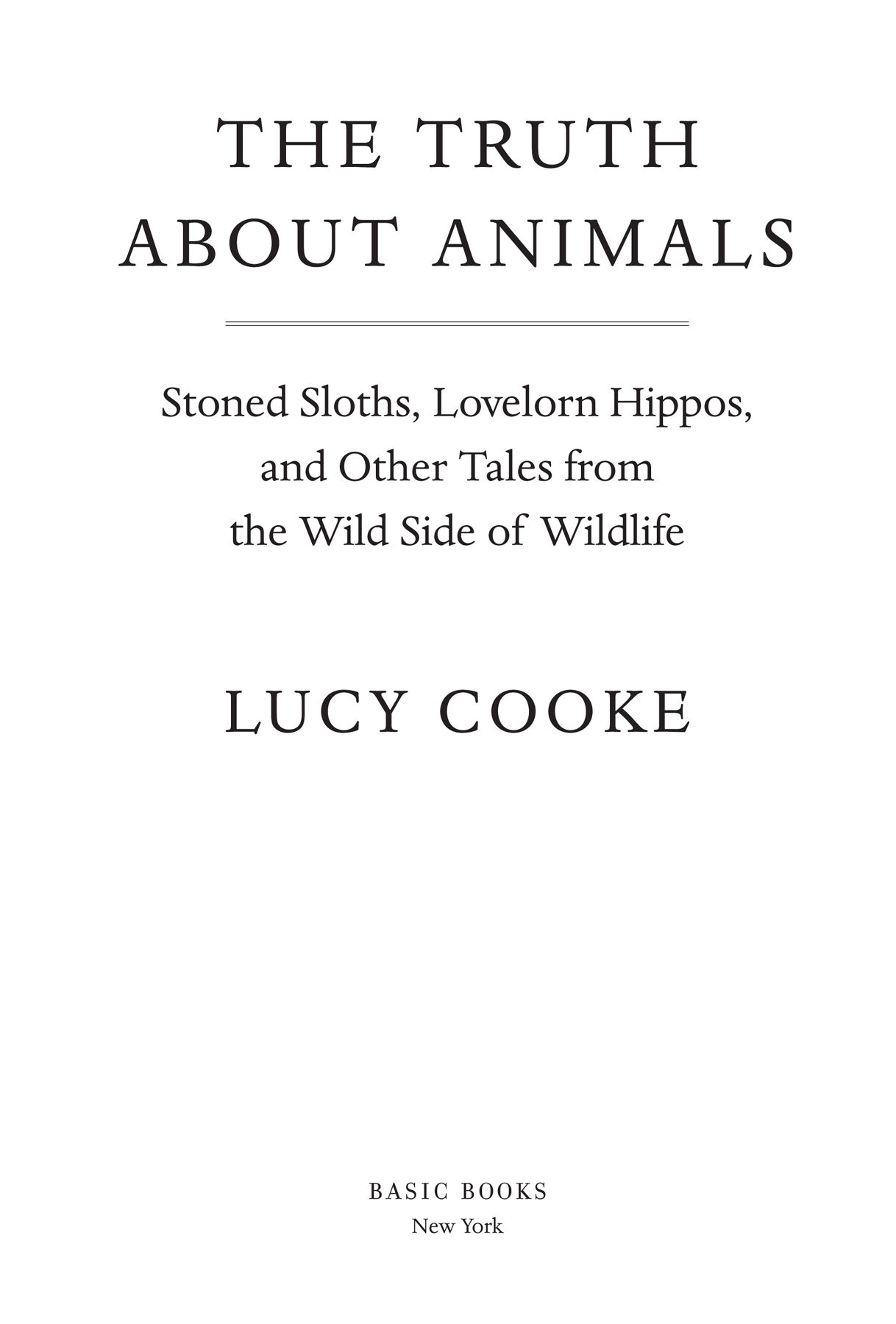Copyright 2018 by Lucy Cooke
Hachette Book Group supports the right to free expression and the value of copyright. The purpose of copyright is to encourage writers and artists to produce the creative works that enrich our culture.
The scanning, uploading, and distribution of this book without permission is a theft of the authors intellectual property. If you would like permission to use material from the book (other than for review purposes), please contact permissions@hbgusa.com . Thank you for your support of the authors rights.
Basic Books
Hachette Book Group
1290 Avenue of the Americas, New York, NY 10104
www.basicbooks.com
Originally published as The Unexpected Truth About Animals in hardcover and ebook by Transworld Publishers in November 2017 in the United Kingdom
First US Edition: April 2018
Published by Basic Books, an imprint of Perseus Books, LLC, a subsidiary of Hachette Book Group, Inc.
The Basic Books name and logo is a trademark of the Hachette Book Group.
The publisher is not responsible for websites (or their content) that are not owned by the publisher.
Additional copyright/credits information is on .
Editorial production by Christine Marra, Marrathon Production Services. www.marrathoneditorial.org
Library of Congress Cataloging-in-Publication Data has been applied for.
ISBN 978-0-465-09464-6 (hardcover)
ISBN 978-0-465-09465-3 (ebook)
E3-20180323-JV-PC
Contents
Navigation
TO THE MEMORY OF MY DAD,
who opened my eyes to the wonders of the natural world
How can sloths exist when theyre such losers?
As a zoologist and founder of the Sloth Appreciation Society I get asked this question a lot. Sometimes losers is further definedlazy, stupid and slow being perennial favorites. And sometimes the query is paired with the riderI thought evolution was all about survival of the fittestdelivered with an air of bemusement or, worse, a whiff of superior species smugness.
Sloths are, in fact, one of natural selections quirkiest creations, and fabulously successful to boot. Skulking about the treetops barely quicker than a snail, and being covered in algae, infested with insects and defecating just once a week might not be your idea of aspirational living, but then youre not trying to survive in the highly competitive jungles of Central and South Americasomething the sloth is very good at.
The reputation of the sloth was sufficiently besmirched that I felt compelled to found the Sloth Appreciation Society. (Our motto: Being fast is overrated.) I gave a talk on the unexpected truth about this much maligned creature to festivals and schools. This book grew out of those talks and the need to set the record straightnot just for the sloth, but for other animals as well.
When seeking to understand animals, context is key. We have a habit of viewing the animal kingdom through the prism of our own, rather narrow, existence. The sloths arboreal lifestyle is sufficiently extraterrestrial to make it one of the worlds most misunderstood creatures, but it is by no means alone in this category. Life takes a glorious myriad of alien forms, and even the simplest require complex understanding.
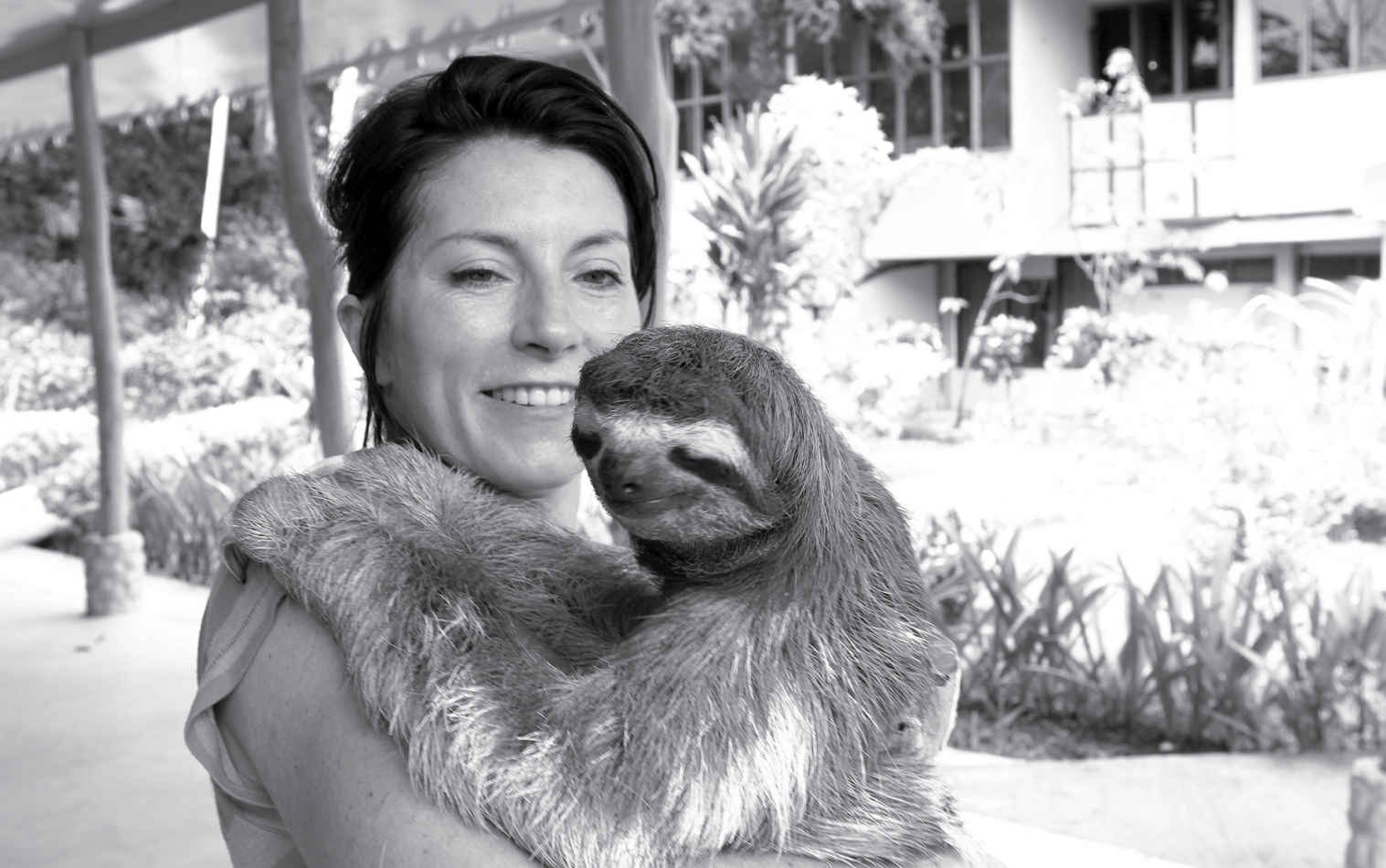
I love sloths. Whats not to like about an animal born with a fixed grin on its face and the desire to hug.
Evolution has played some splendid practical jokes by fashioning implausible creatures with an absence of logic and precious few clues to explain itself. Mammals like the bat that want to be birds. Birds like the penguin that want to be fish. And fish like the eel, whose enigmatic life cycle sparked a two-thousand-year search for its missing gonads. Animals do not give up their secrets easily.
and a horse shoe. As ostriches were bestowed on the courts of Europe by the emirs and explorers of Africa, generations of enthusiastic natural philosophers encouraged the foreign fowl to consume scissors, nails and a glut of other ironworks.
On the surface this experimentation appears to be lunacy, yet dig a little deeper and there is a (scientific) method to the madness. Ostriches cant digest iron, but they have been observed swallowing large, sharp stones. Why? The worlds biggest bird has evolved into a rather unusual grazing animal, whose usual diet of grasses and shrubs is tough to digest. And unlike their fellow plant munchers from the African plains, the giraffe and antelope, ostriches lack a ruminating stomach. They dont even have teeth. Instead, they must tear the fibrous grasses from the ground with their beak and swallow them whole. They employ the quarry of jagged rocks in their muscular gizzard to do the job of grinding down this stringy dinner into more digestible pieces. They can clunk around the savannah with up to a kilogram of stones in their stomach. (Scientists fancy this up and call them gastroliths.)
Again, understanding the ostrich is about context. But so too we must understand the context of the scientists who have been prodding and poking for the truth about animals for centuries. As such, Browne is just one of a great cast of idiosyncratic obsessives. Theres the seventeenth-century physician who tried to spontaneously generate toads by placing a duck on a dung heap (an old recipe for creating life). Theres also an Italian Catholic priest who wielded a mean pair of scissors in the name of science, whether tailoring tiny, bespoke underpants for his animal subjects or removing their ears.
Scientists in more recent times have also chosen to pursue bizarre, and often misguided, methods in their search for truthlike Ronald K. Siegel, the twentieth-century American psychopharmacologist whose curiosity compelled him to get a herd of elephants very drunk indeed, with suitably demented results. Every century has its eccentric animal experimenters, and there will no doubt be many more to come. We humans may have split the atom, conquered the moon and tracked down the Higgs boson, but when it comes to understanding animals we still have a long way to go.
Im fascinated by the mistakes weve made along the way and the myths weve created to fill in the gaps in our understanding. They reveal much about the mechanics of discovery and the people doing the discovering.
Ive found that taking a dissecting knife to our greatest animal myths often exposes a charming logic, transporting us to times of wondrous naivety, when little was known and anything was possible. Why on earth wouldnt birds migrate to the moon, hyenas switch sex with the season and eels spontaneously generate out of mud? Especially when the truth is no less incredible.
I STUDIED ZOOLOGY in the early 1990s at New College, Oxford under the great evolutionary biologist Dr. Richard Dawkins and was taught a method of thinking about the world based upon the genetic relationships among specieshow their degree of relatedness influences their behavior. Some of what I was taught has already been surpassed by recent advancements, which show that the way in which a genome is read at a cellular level is at least as important as its content (which is how we can share 70 percent of our DNA with an acorn worm and yet be so much more fun at a dinner party). Each generationmine includedthinks it knows more about animals than its predecessors, yet were still often wrong. Much of zoology is little more than educated guesswork.

